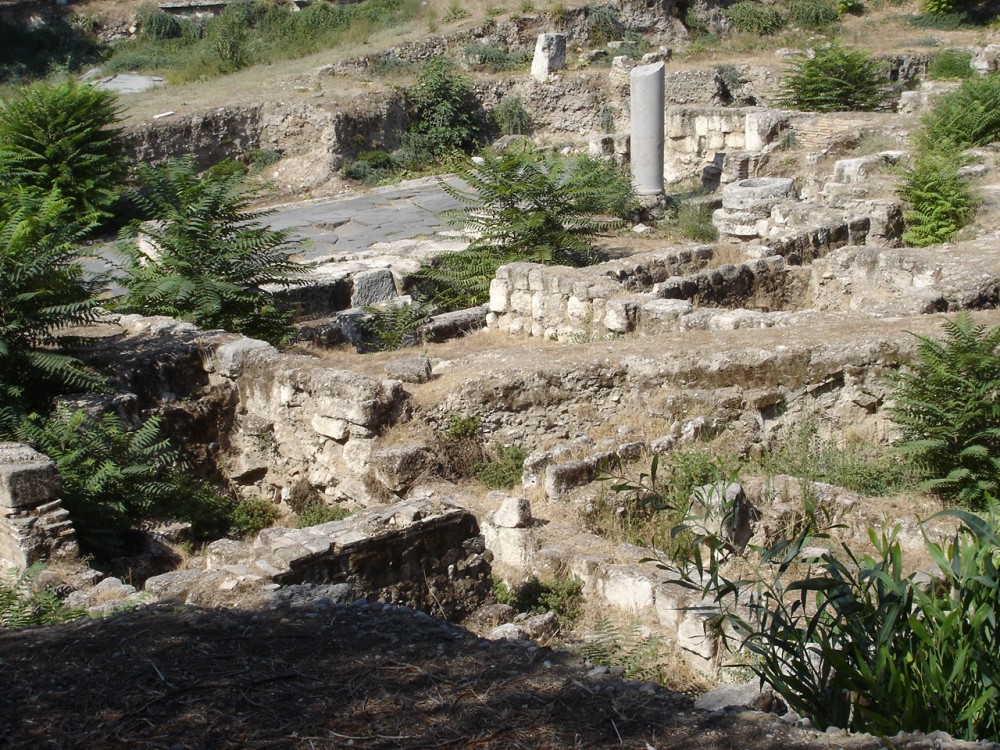25 May. Saul (Paul) sees the 'glory' of the Lord Jesus near Damascus
"They took [Stephen] out of the city [of Jerusalem] and began to throw stones at him to kill him. Those who told lies against Stephen left their coats with a young man named Saul... Stephen cried in a loud voice, 'Lord, do not hold this sin against them.' After Stephen said this he died. Saul agreed that the killing of Stephen was good."
"On that day the church of Jerusalem began to be persecuted, and all the believers, except the apostles, were scattered throughout Judea and Samaria... Saul was also trying to destroy the church, going from house to house, dragging out men and women and putting them in jail."
(Acts 7:58 - 8:3)
"In Jerusalem, Saul was still threatening the followers of the Lord by saying he would kill them. So he went to the high priest and asked him to write letters to the synagogues in the city of Damascus. Then if Paul found any followers of Christ's Way, men or women, he would arrest them and bring them back to Jerusalem."
"So Paul headed towards Damascus. As he came near the city, a bright light from heaven suddenly flashed around him. Saul fell to the ground and heard a voice saying to him, 'Saul, Saul! Why are you persecuting me?' Saul said, 'Who are you, Lord?' The voice answered, 'I am Jesus, whom you are persecuting. Get up now and go into the city. Someone there will tell you what you must do.'"
"The people travelling with Saul stood there but said nothing. They heard the voice, but they saw no one. Saul got up from the ground and opened his eyes, but he could not see. So those with Saul took his hand and led him into Damascus. For three days Saul could not see and did not eat or drink."
(Acts 9:1-9)

Saul (also known by his Greek name, Paul) was born in c.5AD and brought up at Tarsus in the Roman province of Cilicia (in modern-day Turkey) (see Acts 9:30). Tarsus was a centre of great learning, with renowned schools of philosophy and rhetoric. It's hardly surprising that Paul grew up to be a great philosopher and debater (see Acts 17:18-33).
Saul (his Jewish name) belonged to a wealthy Jewish family and was a Roman citizen by birth (see Acts 22:25-29). Unlike most of the other apostles, Paul did not marry, and remained single throughout his life (see 1 Corinthians 7:8 & 9:5).
Saul was taken to Jerusalem as a boy (see Acts 22:3) and was taught by Gamaliel, a respected Jewish Pharisee (see Acts 5:34). He became a strict and zealous Pharisee, and vowed to kill those who followed 'the Way' of Jesus (see Acts 9:2).
When a large number of Jewish priests began to believe in Jesus (see Acts 6:7), Saul started to organise a Jewish backlash, and looked after the coats of the men who stoned Stephen to death in Jerusalem in 35AD (see Acts 7:58).
Later in the year, Saul led a violent persecution of the young Christian church in Jerusalem (see Acts 8:1-3). He went from house to house, dragging men and women off to prison. And when believers in Jesus were found guilty of what was considered to be ‘blasphemy’, Saul called for them to be stoned to death (see Acts 26:10-11).
That year, armed with the Jewish Sanhedrin’s authority to persecute followers of ‘the Way' (of Salvation) (an early name for Christianity), Saul set off from Jerusalem to Damascus (see Acts 9:1-9).
Just before reaching Damascus, the risen Lord Jesus appeared to Saul – who fell to the ground, blinded by the brilliant dazzling light of 'the glory' of the Lord (see Luke 2:9 & Mark 9:2-4). He was led by the hand into the city, and spent three days neither eating nor drinking, fasting and praying about his dramatic experience of the presence of Jesus on the road to Damascus (Acts 9:3-8).
The photo shows remains of Roman Tarsus where Saul (Paul) was born.
You can read more about Paul's dramatic encounter with Jesus on the road to Damascus @ https://www.thebiblejourney.org/…/saul-persecutes-the-beli…/.
